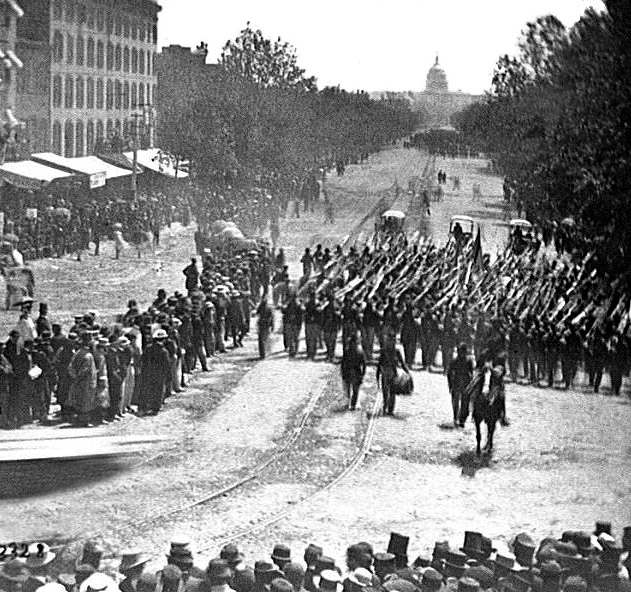Trump Wants a Military Parade–What Does History Tell Us?
“There’s nothing that this seems to be connected to, other than celebrating the fact that we have military.”


When we think of grand military parades in a modern context, the images that immediately come to mind are ones of oppressive regimes. We think of North Korea, China, and the former Soviet Union. Now, Donald Trump says he wants a grand military parade down the streets of Washington D.C.
What would something like that accomplish? What’s the purpose of rolling 30-ton tanks down Pennsylvania Avenue? When we look at those examples in other parts of the world and examples throughout history of military parades, what do they tell us about the mindset and goals of our current president?
New York Times reporter Scott Shane was the Moscow correspondent for the Baltimore Sun from 1988 to 1991 and wrote a book on the Soviet collapse.
Shane joins Stephen Henderson on Detroit Today to discuss the motivations behind the military parades in the Soviet Union. He says that while they were historically meant to be a show of force and unity, the parades in the Soviet Union were meant to disguise the weakness of the crumbling state.
“I think it was obvious at the time, but certainly in retrospect, it was obviously that those parades were not a sign of strength, but a sign of weakness and insecurity masquerading as strength.”
Shane also draws parallels between Soviet propaganda and President Trump’s use of exaggeration to describe his accomplishments, a parallel he calls “disturbing.”
“It’s a little disturbing to see the same phenomenon in the United States, with the president having this well-documented habit of stating things like ‘the biggest tax cut in history’ even after hundreds of news organizations have gone back and done the research and said no, actually, it’s not.”
Ray Haberski, a professor of history and director of American studies at Indiana University-Purdue University Indianapolis, also joins Detroit Today to discuss the historical context of military parades. He says that unlike parades in the past, this parade idea doesn’t seem to have a particular reason.
“Most military celebrations have to do with some sort of military event, like the end of a war, or the memorialization of a certain day,” Haberski says. “This seems to come out of left field. There’s nothing that this seems to be connected to, other than celebrating the fact that we have military.”
Click on the audio player above to hear the full conversation.
